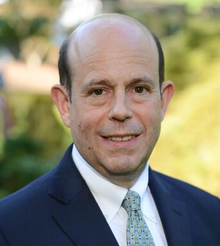MeetingMentor Magazine
Are You Ready for Magic Mushrooms at Meetings?
Some thought it was crazy when Colorado OK’d recreational cannabis use back in 2012, but it turned out to be the harbinger of a trend. Today, 10 other states, the District of Columbia and Canada have done the same, and 33 states have legalized medical use of marijuana, which is still prohibited as a Schedule 1 drug under federal law. Meeting professionals have adjusted accordingly, now factoring in what they need to do to inform and protect their attendees and their organizations when meeting in a locale where the substance is legally available, and attendees may be curious to give it a try.
In May, the city of Denver narrowly approved a vote to decriminalize psilocybin, otherwise known as “magic mushrooms,” also considered a Schedule 1 hallucinogen under federal law. Unlike marijuana, psilocybin won’t be legal to use in Denver, but it will be a low priority for law enforcement, and if caught, users will likely only be subject to a fine. Shortly after Denver made its move, the city of Oakland, Calif., took it a step further, decriminalizing “entheogenic plants” in general, which in addition to psilocybin mushrooms include peyote and other plants and fungi that contain psychoactive substances.
 According to meeting industry attorney Joshua Grimes, Esq. (pictured), Grimes Law, meeting professionals should pay attention to Denver’s move because it could be the “next step, now that marijuana is legal in so many places. Now we have another drug being decriminalized, a psychedelic drug they may have to deal with at their events. It’s another reason for meeting professionals to have to think about the growing use of formerly illegal drugs that their attendees may be using more frequently because they’re now legal, like cannabis, or decriminalized, like mushrooms.”
According to meeting industry attorney Joshua Grimes, Esq. (pictured), Grimes Law, meeting professionals should pay attention to Denver’s move because it could be the “next step, now that marijuana is legal in so many places. Now we have another drug being decriminalized, a psychedelic drug they may have to deal with at their events. It’s another reason for meeting professionals to have to think about the growing use of formerly illegal drugs that their attendees may be using more frequently because they’re now legal, like cannabis, or decriminalized, like mushrooms.”
He advised meeting professionals to investigate what’s legal and permitted and what’s decriminalized at their meeting’s locale. For example, while psilocybin mushrooms have been decriminalized in Denver, it is still illegal to buy or sell the substance.
Meeting organizers also need to investigate whether they need to take action to ensure that their attendees are not using the drugs during their meetings and social events or, if they are, to ensure they’re doing so in a safe manner, Grimes said, “and possibly even take additional steps to ensure attendees know how to use these things in a safe manner, even if they’re doing it on their own.”
Even if you don’t serve cannabis or mushrooms at your meeting, if you know your attendees are using a legalized or decriminalized drug — or you should have known they were using it — you may have a duty to make sure that they can’t cause harm to themselves or others while they’re engaged in using cannabis, magic mushrooms or whatever else comes down the pike, said Grimes.
“We live in a society where, when someone gets hurt, they look for other people to take responsibility. Someone could go to a meeting in Denver and take some magic mushrooms and get in an accident and hurt someone else. That person likely would be looking to put some possible liability on the meeting organizer. I’m not saying they would eventually be found guilty, but insurance companies often settle these types of things.”
While it’s not a legal issue, he said meeting professionals may want to remind attendees that just because a local jurisdiction may say it’s no longer a criminal offense to use marijuana or magic mushrooms in that city, using such drugs while at the meeting still could have serious consequences.
“I get asked this all the time: ‘What if we do a meeting in California where cannabis use is legal, and I test positive for it when I go home?’ Well, if your company has a zero-tolerance drug policy and you test positive, you could be terminated,” he said.
It’s also important to remember that cannabis is still illegal under federal law, he reminded. “This is important not just for people who are meeting in Denver or who live there. It’s just another example of where drug use is becoming more accepted, and that trend is likely to continue in more places moving forward,” he said. “You have to anticipate it. I see it as yet another thing to add to your list.”
Free Subscription to
MeetingMentor Online
"*" indicates required fields
About ConferenceDirect
About MeetingMentor